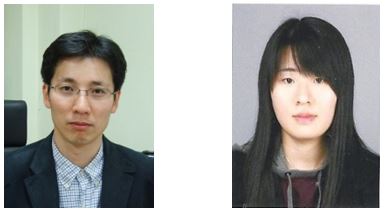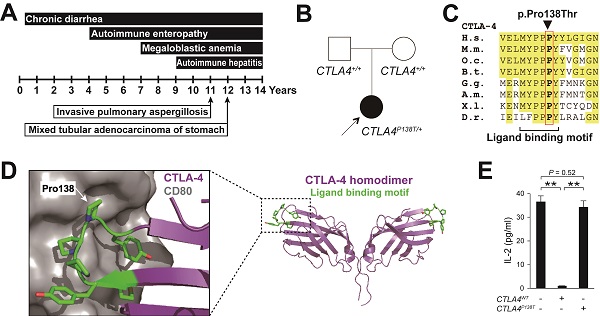Media Center
A multimedia mosaic of moments at GIST
GIST Excellence
[Press release] Joint research collaboration between GIST and Seoul National University succeeds in treating a patient with severe autoimmune symptoms
- 엘리스 리
- REG_DATE : 2015.11.09
- HIT : 951
Joint research collaboration between GIST and Seoul National University
succeeds in treating a patient with severe autoimmune symptoms
Clinical success in treating severe autoimmune symptoms in a patient via gene sequencing and analysis is reported in the Journal of Allergy and Clinical Immunology

Professor Sung Gyoo Park (right) and Ph.D. candidate Cho-Rong Lee (left)
GIST (Gwangju Institute of Science and Technology) Professor Sung Gyoo Park of the School of Life Sciences and Integrative Aging Research Center led a research team that identified a rare and incurable autoimmune disease in collaboration with Seoul National University that resulted in the successful clinical treatment of the patient through personalized therapy.
The research was centered on a 14-year old Korean girl who suffered from numerous autoimmune maladies, which included: chronic diarrhea from the age of 3 months, autoimmune enteropathy at the age of 4, anemia with vitamin B12 deficiency at the age of 7, autoimmune hepatitis at the age of 8, jaundice accompanied by pancytopenia at the age of 11, and hematochezia and mixed tubular adenocarcinoma of the stomach at the age of 12.
Whole-exome sequencing of the patient and her healthy parents led to the discovery of a nonsynonymous de novo variant in cytotoxic T-lymphocytes antigen 4 (CTLA-4), which would normally suppress and modulate immune reactions by interacting with ligands expressed in antigen-presenting cells. Because the patient had a functional mutation in CTLA-4 located on her Treg cells, she was treated with a CTLA-4-Ig agent (which is a CTLA-4 mimetic commonly used to treat symptoms of rheumatoid arthritis) that reconstructed Treg-cell functionality and substantially improved her condition.

(Figure 1). De novo CTLA-4 mutation in early-onset multiorgan autoimmune disease. A and B, Disease course and pedigree of the patient. C, The evolutionary conservation of the mutated reside. D, Structure of CTLA-4 homodimer (right) and interaction with CD80 (left). E, Overexpressed CTLA4P138T lost the ability to suppress IL-2 production in Jurkat cells.
GIST Professor Sung Gyoo Park said, "This study utilized genomic analysis of a patient to find the specific genetic mutations that are causing diseases. This approach represents a new model for personalized patient diagnosis and more precise treatment of diseases."
A Letter to the Editor entitled "Abatacept alleviates severe autoimmune symptoms in a patient carrying a de novo variant in CTLA-4" was published on October 15, 2015, in the online edition of the Journal of Allergy and Clinical Immunology. GIST Professor Sung Gyoo Park and Seoul National University Professors Jae Sung Ko and Murim Choi were the co-corresponding authors, and GIST Ph.D. candidtate Cho-Rong Lee was one of the three co-first authors.
Part of this study was supported by the Post-genome Program of the National Research Foundation funded by the Ministry of Science, ICT & Future Planning, the Seoul National University Hospital Research Fund, the Korean Health Technology R&D Project, Ministry of Health andWelfare, Republic of Korea, and the Integrative Aging Research Center at the Gwangju Institute of Science and Technology.